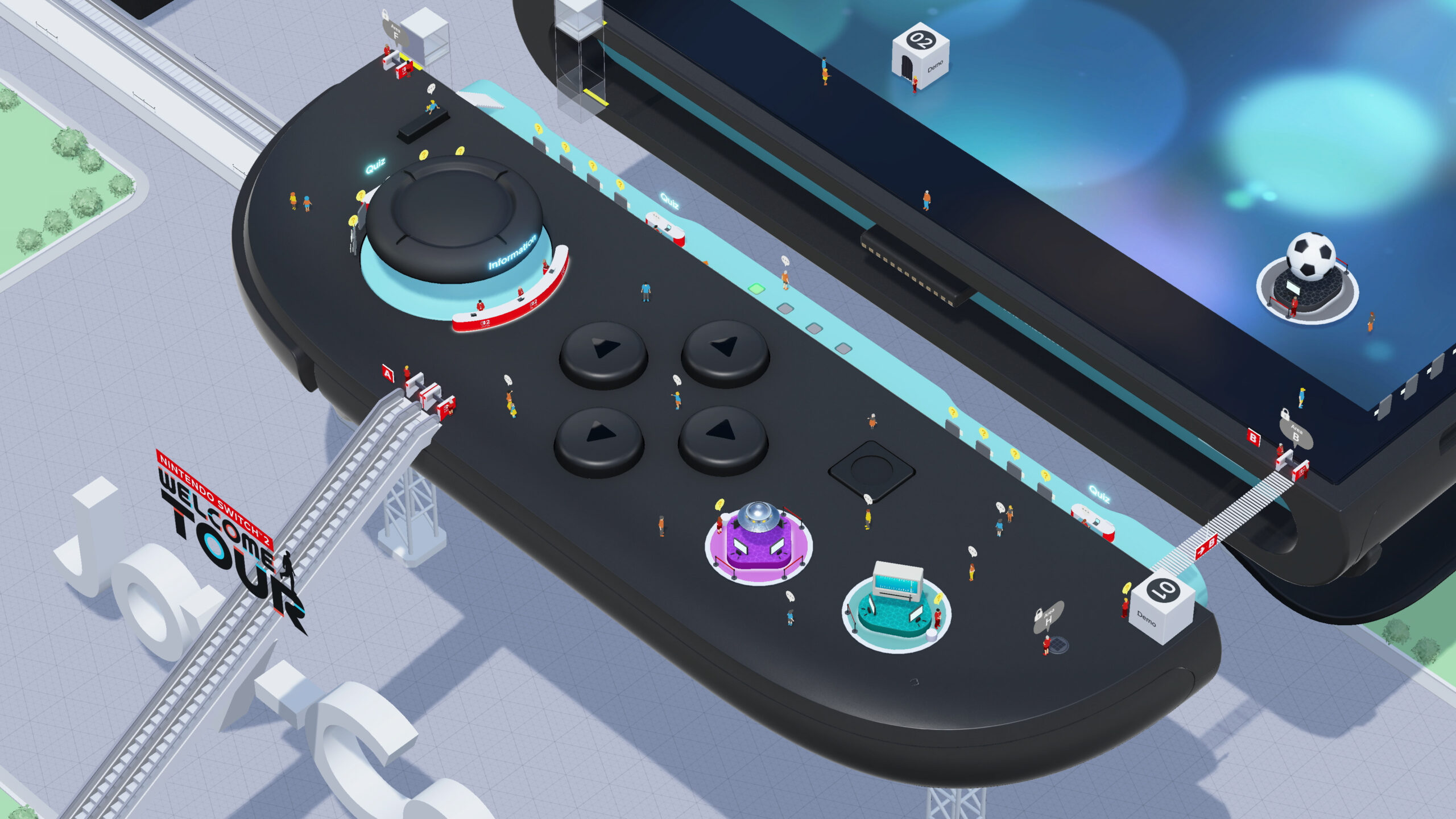
One month ago, Nintendo announced that the Switch 2 had sold 3.5 million units in four days after its June 5 launch, making it Nintendo’s fastest-selling console ever, and likely the biggest console launch of all time. It seems the new Switch is maintaining that momentum. Last week, an apparently accidental data leak on Nintendo’s corporate website suggested that the new console had either sold or was projected to sell 5.4 million units through the end of June. (PlayStation 5 sold 4.5 million units in almost twice that time.)
In other words, Nintendo has a hit on its hands, at least in the short term. Which makes it all the stranger that, after a media blitz immediately surrounding the Switch 2’s launch, there hasn’t been much hype or lasting conversation about the new console. Millions of people own one, but not that many of them seem to be talking about it; the gamer hive mind has moved on, with surprising speed, to the likes of Death Stranding 2.
Has something gone wrong? I don’t think so; in one crucial respect, Nintendo planned an unusual rollout for the Switch 2, which has yet to fully pay off. Is the console underwhelming? This is a matter of opinion — but to the extent that it’s true, I think it was almost designed to be.
As I pointed out in my Switch 2 review, the new console emphasizes continuity to an unprecedented degree. The interface is near-identical to the Switch’s, the form factor is extremely familiar, the data transfer process is seamless, and features like GameShare and Virtual Game Cards push the idea of a high level of interoperability. Switch 2 has been designed to live alongside Switch as much as replace it, and to slip into your life as easily as a new generation of iPhone.

This is totally deliberate on Nintendo’s part, and one of the things that most recommends the Switch 2. But it inevitably makes the system a little less exciting and less of a talking point. It’s a well-engineered and technically impressive upgrade to your Switch experience, but it’s not an all-new experience.
Another factor was Nintendo’s choice of launch game for the Switch 2. Here, Nintendo again chose a degree of familiarity over the shock of the new.
With its open-world design, Mario Kart World is theoretically a major shake-up for the Mario Kart series. It’s caused its fair share of controversy within the hardcore Mario Kart community. But perhaps the most surprising thing about it is how comfortable and familiar it feels. Nintendo has bent over backwards to preserve the classical structure and feel of a Mario Kart game, even within this new context. It seems likely that a silent majority of players have slipped it into their daily gaming routine without a thought.
Beyond this, Mario Kart as a whole is the essence of a known quantity. Nintendo probably chose World as a Switch 2 launch title on the basis of Mario Kart 8 Deluxe’s gigantic sales, but in doing so it also chose a game series that people regard as a kind of ever-present utility for Nintendo consoles, rather than an attention-grabbing system seller like, for example, The Legend of Zelda: Breath of the Wild. It’s part of the fabric of almost every Nintendo fan’s life, but not necessarily what will get them most excited, or generate the most conversation.
This would all be a bit deflating if it weren’t for the fact that Nintendo has another game ready and waiting that is a much bigger swing, and has the potential to effectively launch Switch 2 a second time.

Donkey Kong Bananza’s July 17 launch date is a rarity — a major exclusive release timed just six weeks after the system’s launch. I’ve argued before that the game could likely have been ready for Switch 2’s launch, and that Nintendo has held it back, either out of fear of cannibalizing Mario Kart World’s sales or as a marketing strategy to extend the hype window for the Switch 2.
As a “launch” game, Bananza seems like a more exciting prospect than Mario Kart World. It’s the first 3D Donkey Kong platformer in 25 years; it’s a new game (and change of franchise) from the Super Mario Odyssey team; and it’s a bold, open-ended design, more than a little reminiscent of Breath of the Wild, with free-form destructibility at its core. On the face of it, it has a level of scarcity and novelty that Mario Kart World just doesn’t.
There’s every chance that Donkey Kong Bananza will revive Switch 2 hype and flood timelines more effectively than Mario Kart World did. It could be that Nintendo got its launch games the wrong way around. Or it could be that this was the company’s plan all along, and it had always planned Switch 2’s launch as a two-stage rocket. We’ll find out on July 17.
